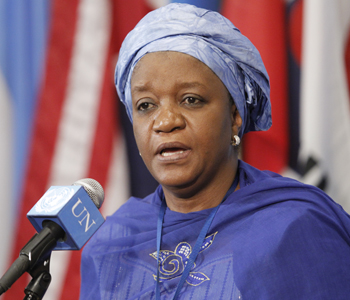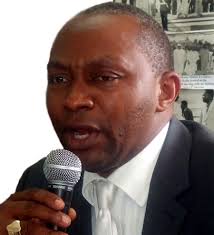
Seized. Separated from family. Stripped. Sorted according to beauty and “virtue.” Then shipped into the dark heart of the Islamic State.
Sold to the highest bidder. Brutalized. Sold and brutalized again. En masse.
The UN’s Special Representative on Sexual Violence in Conflict heard the sadistic, soul-crushing whole of it in April as she travelled, country by country, collecting accountsfrom survivors of Islamic State sex atrocities now huddled on the overwhelmed refugee fringes of the self-declared caliphate.
And now Zainab Bangura is calling for a global flexing of humanitarian muscle to restore hope to these shattered young women.
“We need a humanitarian surge. It can’t be just Canada, it can’t be just Europe — everyone has a role to play in attending to the sheer scope to the damage,” Bangura told The Star in an interview Thursday.
“There are 40,000 men from more than 100 different countries inside the Islamic State using brutal sexual violence as a strategic tactic to terrorize. We need all 100 countries involved, helping to deal with the aftermath.”
In Turkey, Lebanon, Syria, Jordan and finally northern Iraq, Bangura sat with escapees from enslavement. Some Christian, others Turkmen Shia. But mostly Yazidis — worshippers of a Mesopotamian faith that claims direct lineage to the Garden of Eden.
One 10-year-old Yazidi girl told her, “How can I be worth anything now?” Another described being traded 22 times as a sex slave before fleeing her last captor. Another described being among a group of 14 Yazidi women who consumed diluted rat poison in a collective attempt at suicide. Rescued by their captors, some were treated at hospital, and then beaten for disobedience. Seven managed to escape out a window and slip away to freedom.
Bangura met with the mother of 20-year-old Zuhour Kati, who was set on fire in January by an Islamic State fighter from Saudi Arabia for refusing to perform “extreme sexual acts.” Rescued by a brother with burns to nearly 90 per cent of her body, the young Yazidi woman died in hospital in the Turkish city of Malatya.
“Her mother told me, ‘My daughter is better off dead.’ ” Bangura tabled her findings at the UN two weeks ago, briefing Security Council members. She spoke separately to Arab League delegates. Then it was wheels-up for Europe — consultations with the International Criminal Court in the Hague, then to Sweden and now Germany, where she met Thursday with Foreign Minister Frank-Walter Steinmeier.
Bangura, a native of Sierra Leone whose work has taken her to Bosnia, Congo, South Sudan, Somalia and the Central African Republic, said nothing in her past travels remotely compares to the “systematic war on women” being waged in Iraq and Syria.
According to one UN estimate, as many as 3,000 women remain enslaved by Islamic State group members. Other Yazidi organizations have pegged the number at nearer to 5,000. About 1,000 are Yazidi women and girls are known to have made their way to freedom, either by escape or through the payment of ransom via intermediaries.
“The girls that I sat with, I told them, ‘They tried to strip away your humanity. Now we must do everything possible to help you strip victory away from the Islamic State — we will have your backs, we can provide counselling, we can help you go to school and make something of yourselves, become whole again,” said Zainab.
“This is precisely what ISIS does not want. It can be a kind of vengeance, helping these women recover and giving them a path to thrive. But they need qualified medical and psychosocial support and neither the UN nor the regional authorities are in a position to provide it.”
Mirza Ismail, head of the Canada-based International Yazidi Human Rights Organization, welcomed Bangura’s efforts, but said that relocation of the escapees to western countries should also be considered, given the precarious state of human rights in non-Islamic State-held Iraq.
“There are escaped Yazidi girls pregnant as young as nine years old and the government here says it is against Sharia law to provide abortion, even though we are not Muslim,” Ismail told The Star in an email from Iraqi Kurdistan, where he is currently travelling.
“They do need help. But if the UN cannot protect their human rights, we would prefer these innocent girls be brought to Canada where they can recover and live in peace and freedom as human beings with dignity.”



